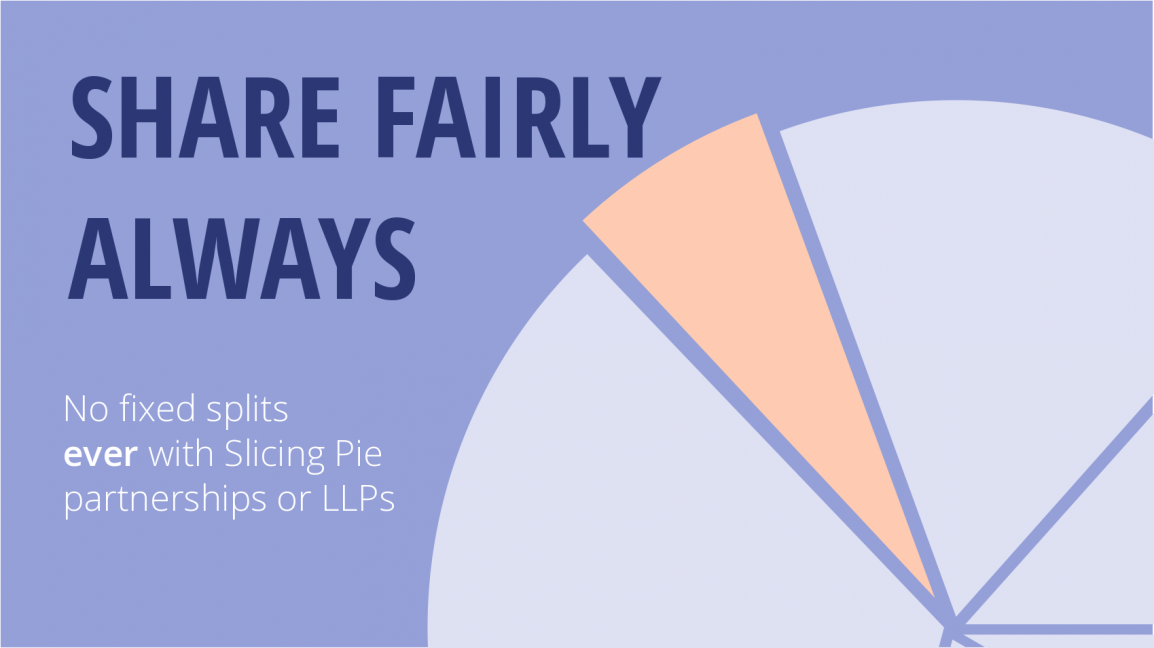One of the things we had to decide when we finally got round to doing our legals – and we’ll talk about when you should do those another time – was what type of legal structure should we use?
Let’s set up a company!
First, a bit of history. Back in the day, when we were at law school, there were only two choices:
- company, or
- partnership.
And like generations of lawyers before us, we were taught that, for big business, partnerships sucked. First of all, partners had more tax to pay. And second, they had much more risk, because partners can’t limit their liabilities. That’s not to say that we’d never do them. Partnerships always worked really well for professional services, as well as small businesses where liability is not such an issue. And bearing in mind that small businesses dominate – making up 99.3% of the private sector even now – partnerships were not to be sniffed at. However, we were being trained for the City. And in those bull market days, companies ruled.
Or should we?
To be honest, people do still love companies. However:
- tax rates have changed, and
- partnerships can now have limited liability.
So LLPs (or limited liability partnerships) now give companies a decent run for their money. And in fact, where grunt funds are involved, LLPs and partnerships can be a great option.
Why are LLPs great?
Because in a grunt fund partnership or LLP:
- Slicing Pie can be used as a way to share profits as well as equity, and fair sharing can go on forever;1
- it’s cheaper and easier to set up and run a grunt fund partnership or LLP compared to a grunt fund company; and
- tax is simpler, because – unlike companies – partnerships and LLPs pay no tax.2
Mike Moyer also thinks so. When talking about the nearest USA equivalents, he’s even said this:3
“9 out of 10 grunt fund startups I see would be better set up as LLCs rather than C-corps.”
Mike Moyer in conversation, 2015
Taken together, these are all very good reasons to consider an LLP or partnership grunt fund. (So much so, that we’ve got over our company bias, and now have a grunt fund LLP of our own.)
Hmm…what shall I choose?
Although partnership and LLP grunt funds are fairer and simpler, there will always be times when a company structure is best. We chose an LLP because that was right for our law firm – but that wouldn’t have suited our original Slicing Pie startup. What’s most important is to choose what’s right for your business. And remember, if you want limited liability, you’ve now got two really interesting choices: company or LLP.
You can read more about how to choose your grunt fund legal structure here. And if you’d like to talk to us about making that choice, contact us here.
Share this Post
1 Because equity partners usually accept risk and below-market salaries in order to share in the equity and partnership profits (unlike salaried partners who are fully-paid, don’t risk their time or their assets and therefore don’t share in the pie).
2 Partnerships and LLPs are what’s called “transparent” for tax purposes, meaning that each partner or LLP member pays tax on their own share of partnership/LLP profits. Unlike companies, which pay corporation tax, partnership and LLP vehicles themselves pay no tax.
3 It’s really hard to compare US and UK legal structures, and even the courts have a tough time. However, in very broad terms, UK LLPs can generally be thought of as similar to US LLCs if their owners choose to tax them transparently, whilst UK private limited companies are more like US C-corps, because they both have shares.


